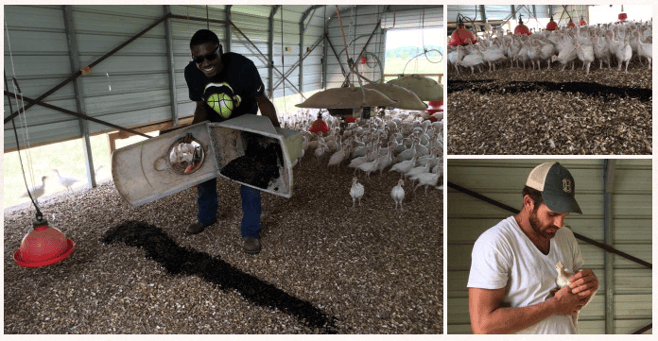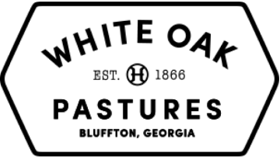A byproduct of our red meat abattoir is a lot of intestines and guts. It’s not as much waste as there would be in an industrial plant that processes up to 100 times more animals than we do, but it’s still a lot. Most people would throw all those intestines away. We’re full-circle at White Oak Pastures, so we feed ‘em to black soldier fly larvae, which our poultry devour, and then fertilize our land with their feces. Win win win win win!
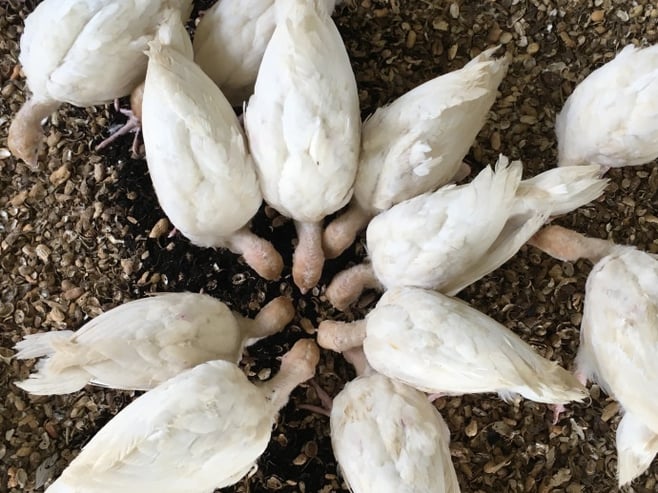
We breed native black soldier flies inside an old grain silo that stored corn for the cattle before we transitioned to grassfed. The flies lay their eggs here, and then we move the eggs into large grey tubs where they hatch. Interesting fact: adult black soldier flies don’t eat, or even have functioning mouths; they spend their short 5-8 day lifespan searching for a mate and reproducing.
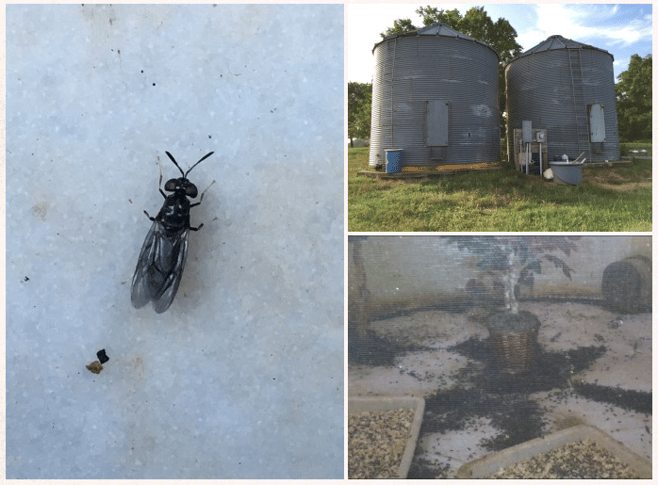
Their larvae, however, eat any and all organic material. We take the intestines from our abattoir and feed them to the black soldier fly larvae (see the larvae in action here). They eat and grow, and when they’re ready to pupate, they self-harvest by crawling up the ramps on the sides of the tub and dropping into a bucket.
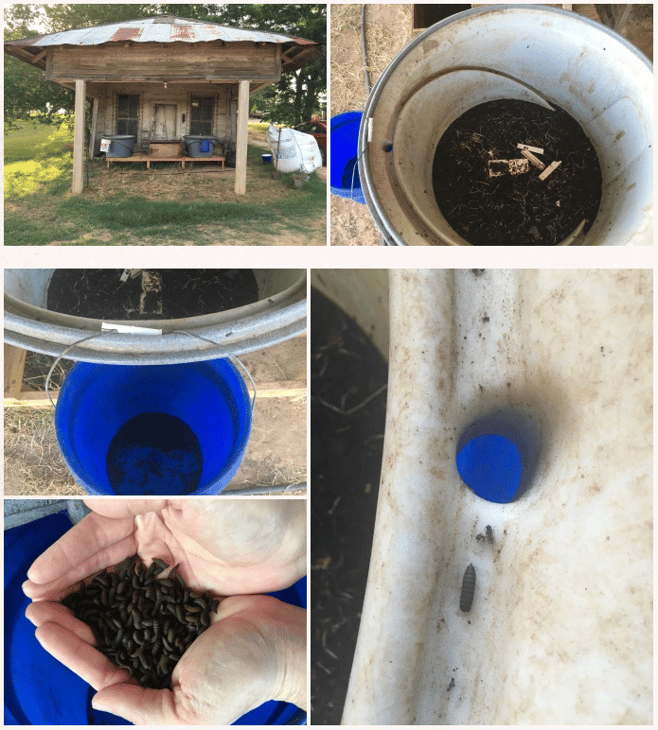
The larvae serve two really important purposes: eating up that organic material from our red meat abattoir, and producing a protein- and fat-rich feed source that we use to supplement the diets of our pastured poultry. Today’s chickens evolved from jungle fowl in Southeastern Asia, and they are naturally omnivorous, hunting and foraging for bugs, grubs, and even small reptiles and mammals. We strive to emulate nature at White Oak Pastures, and with our black soldier fly program we go to great lengths to provide our poultry a very natural feed supplement.
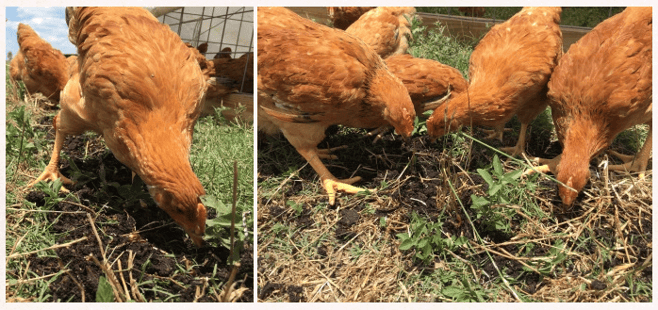
They say the early bird gets the worm, not the corn and soy mix. Mother Nature has some really cool ways of doing things, when we work with her.
